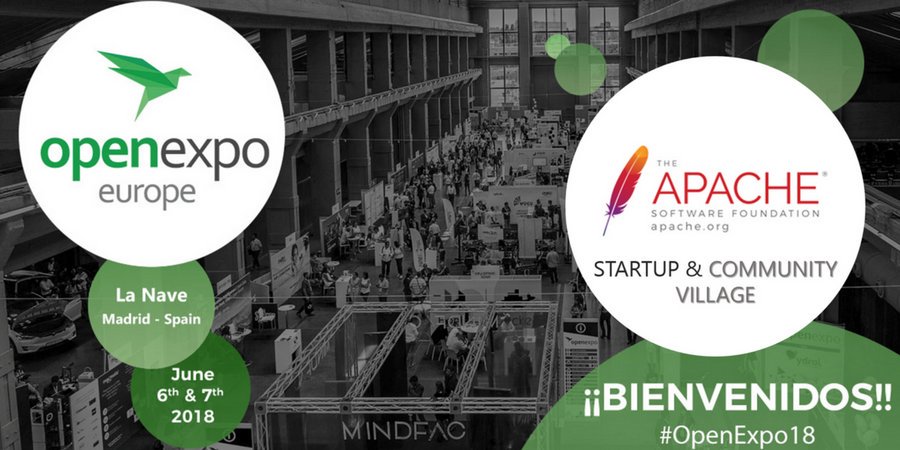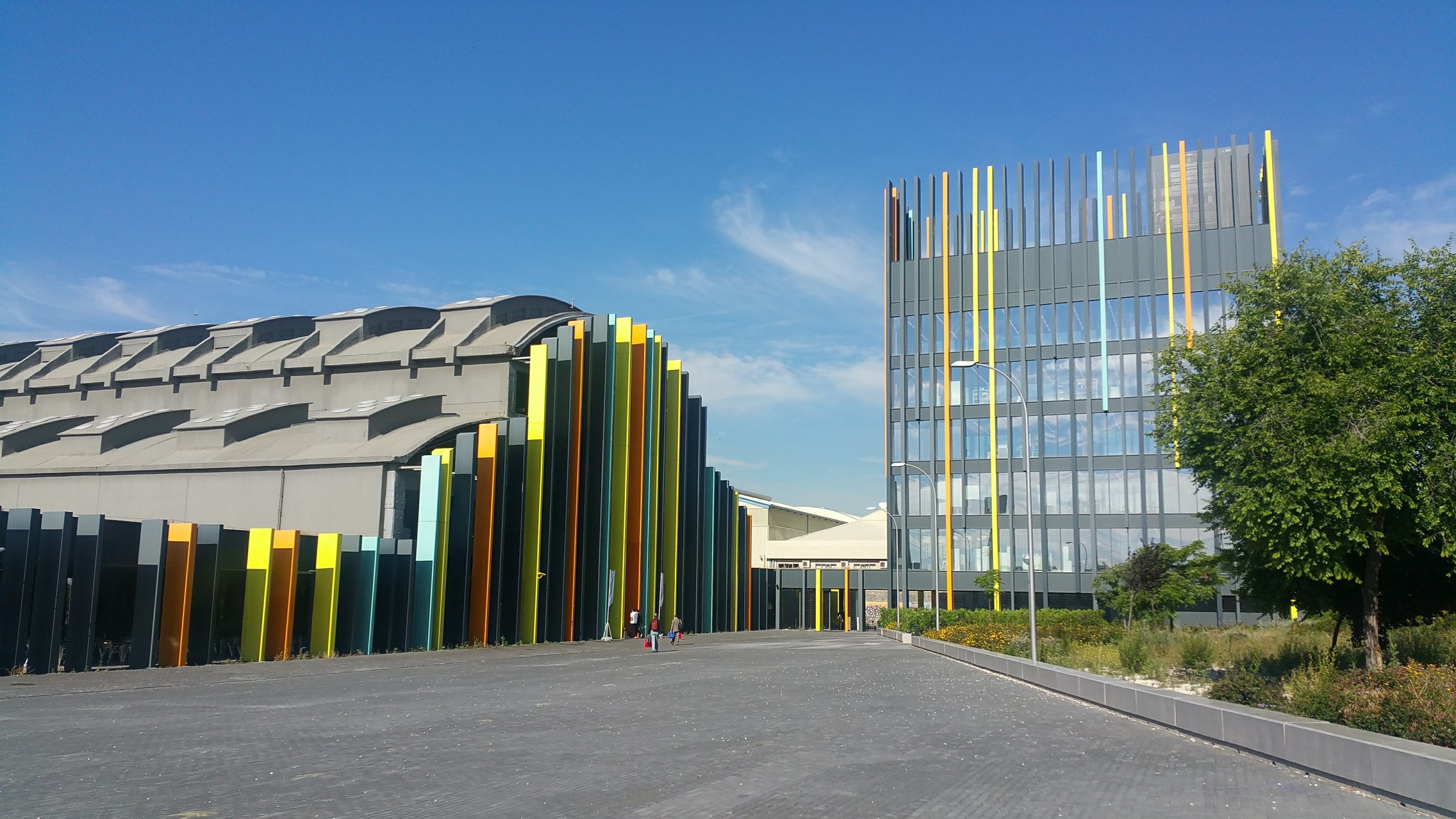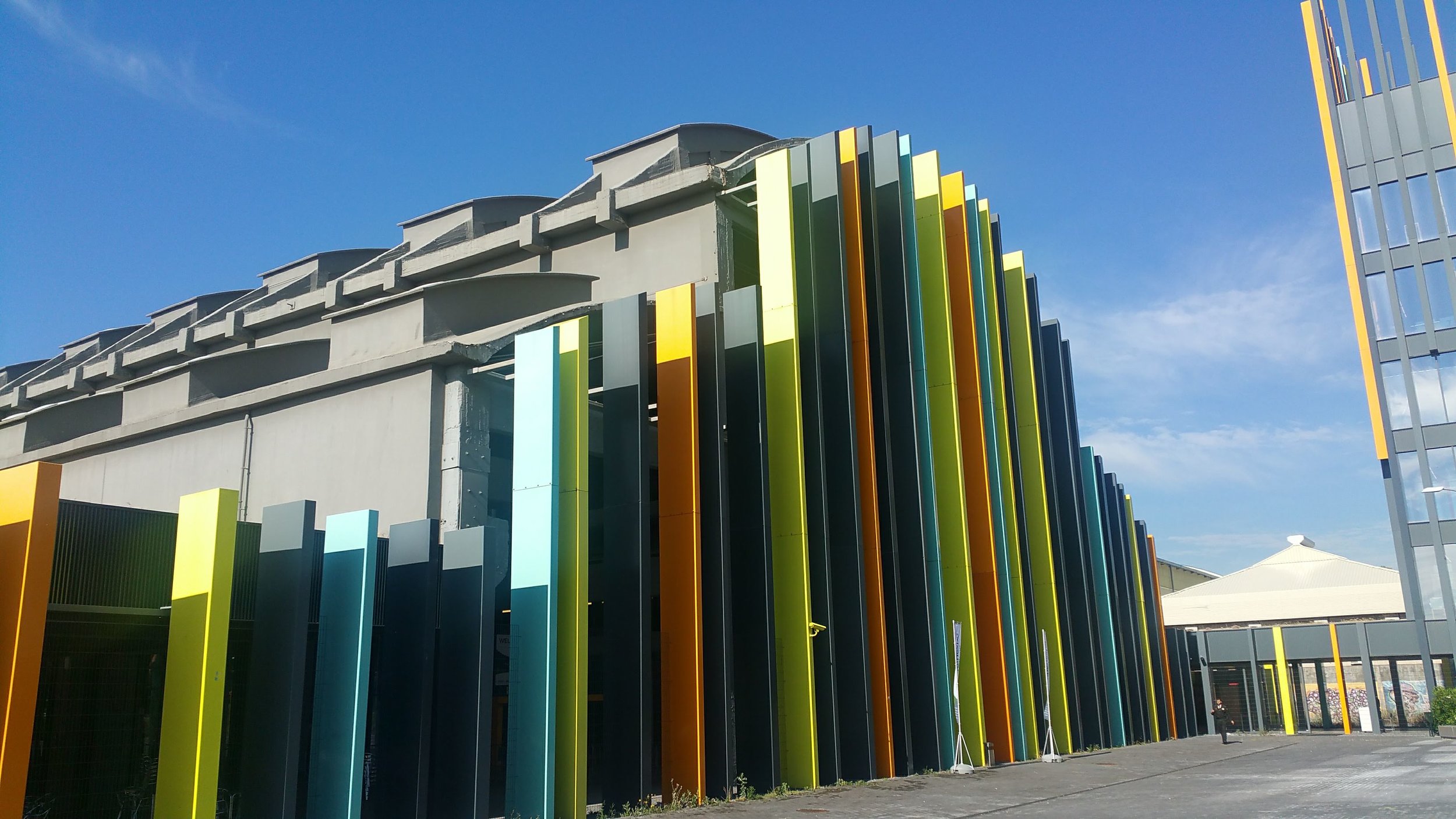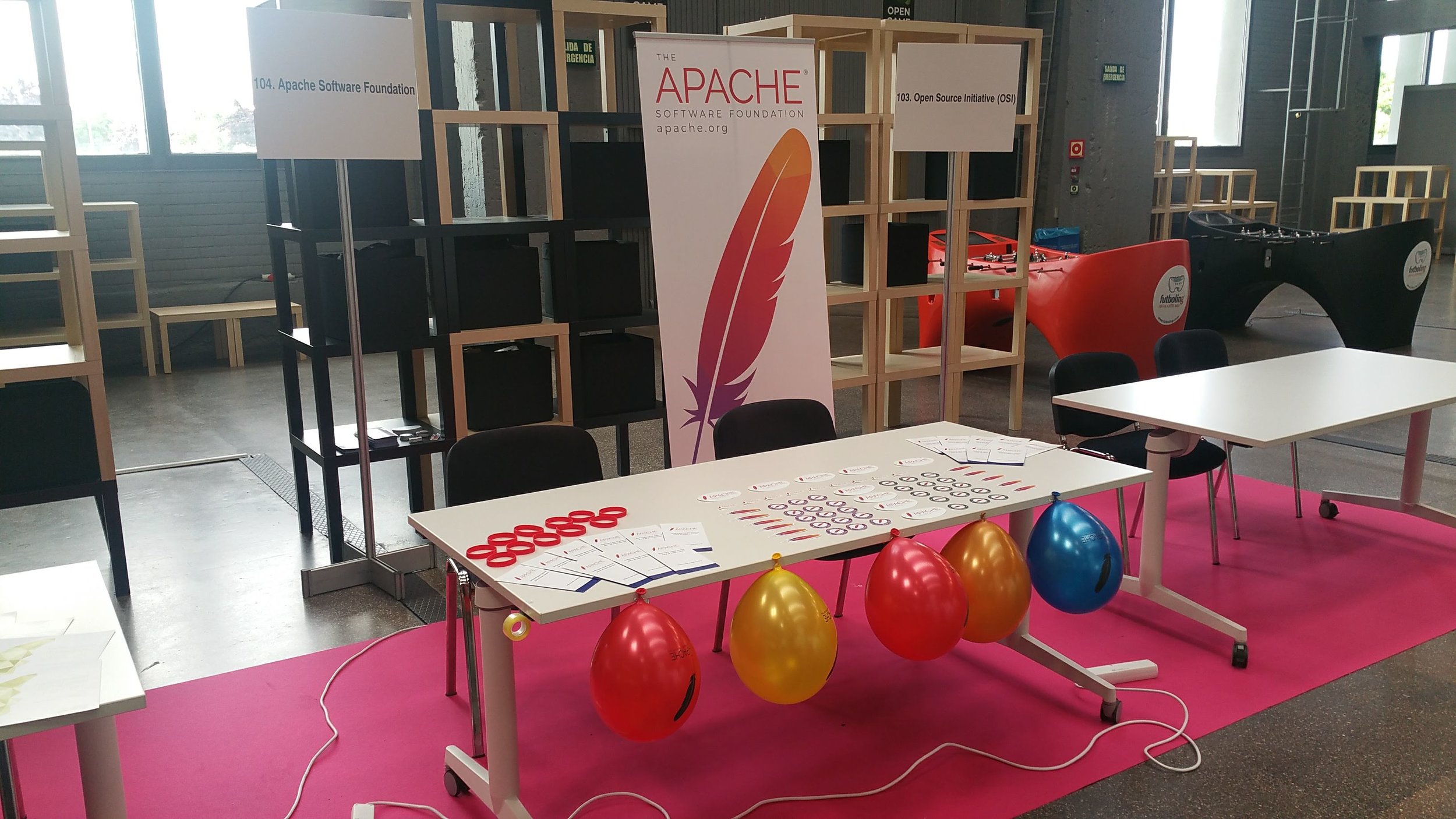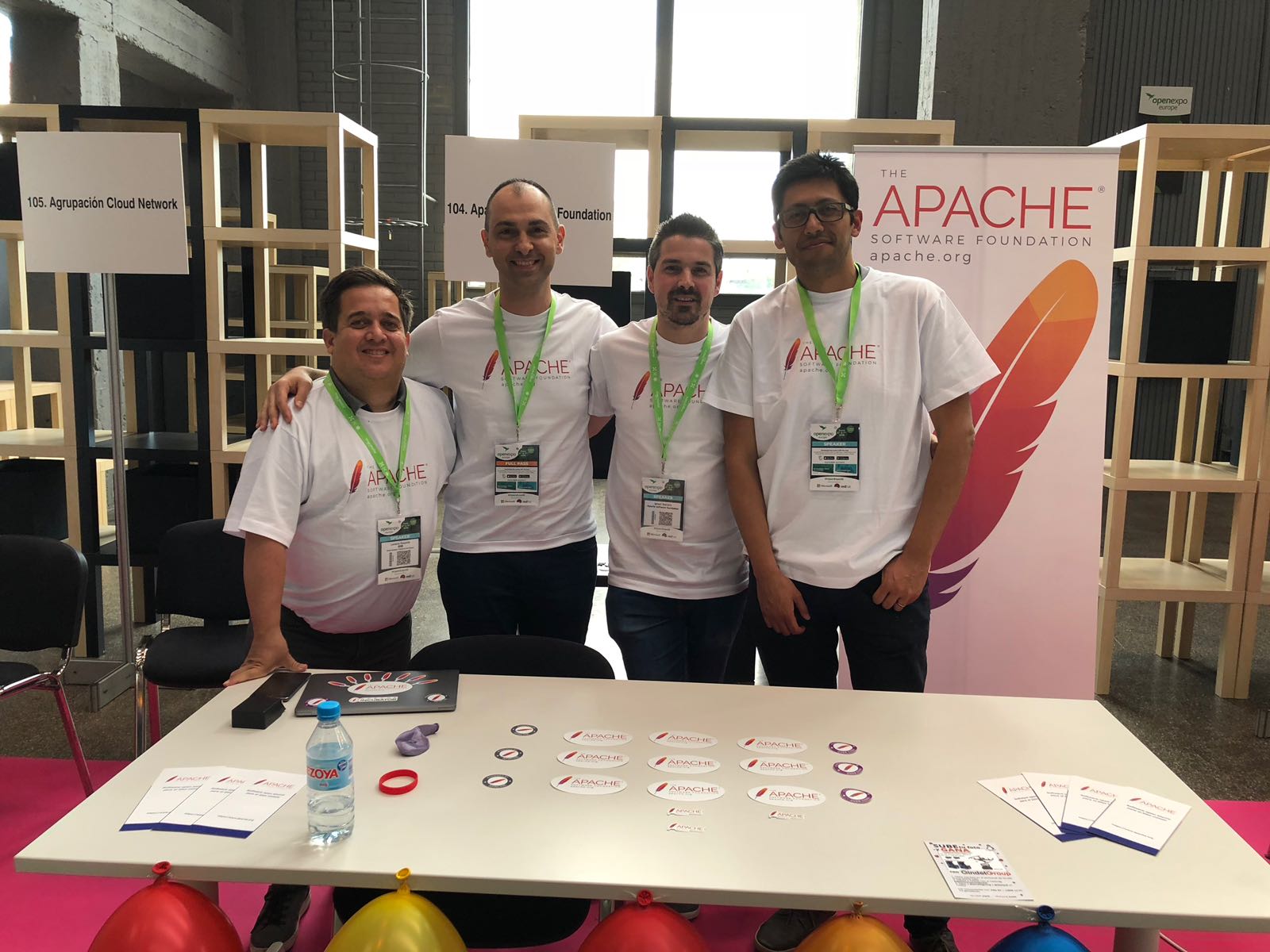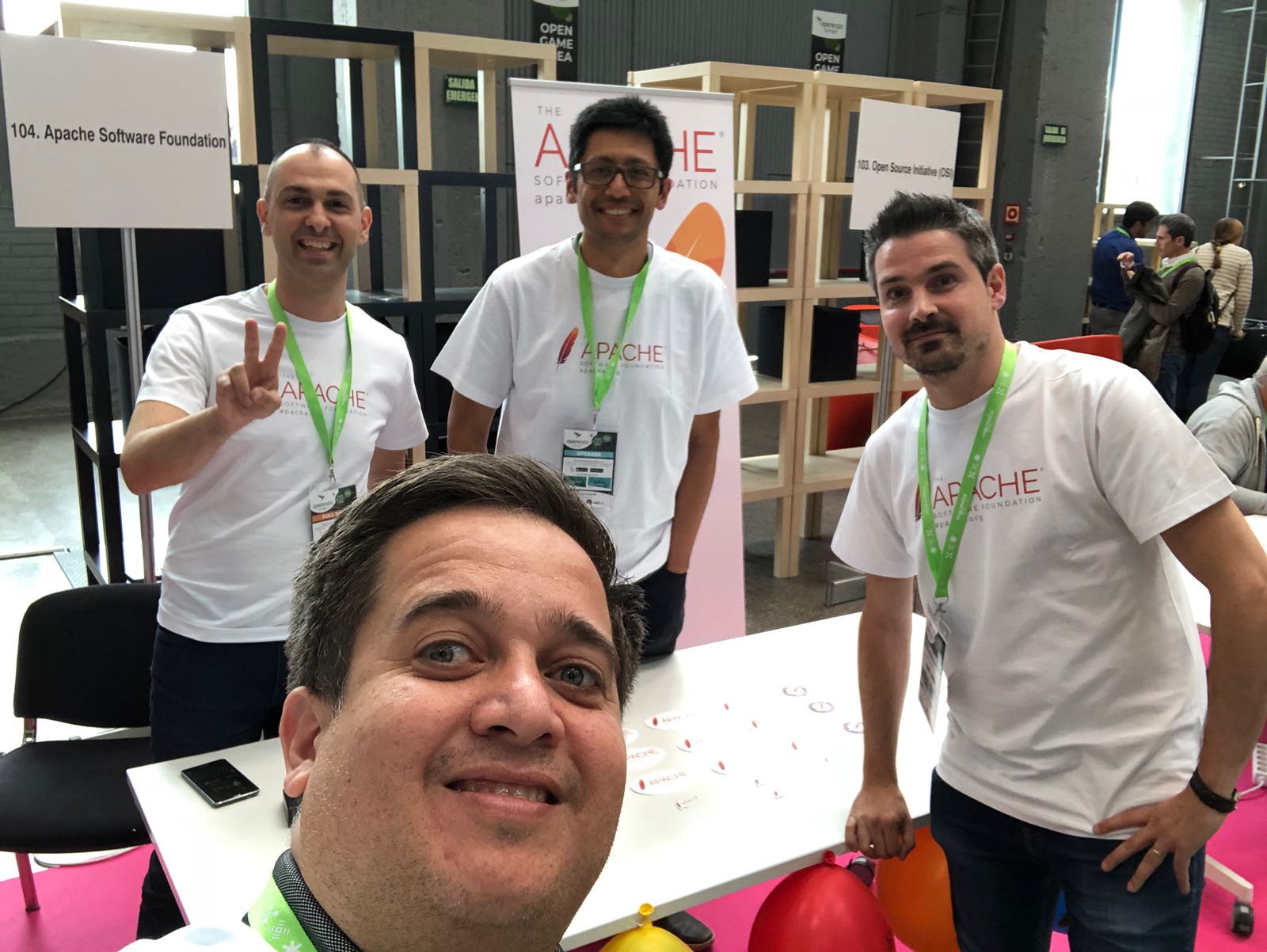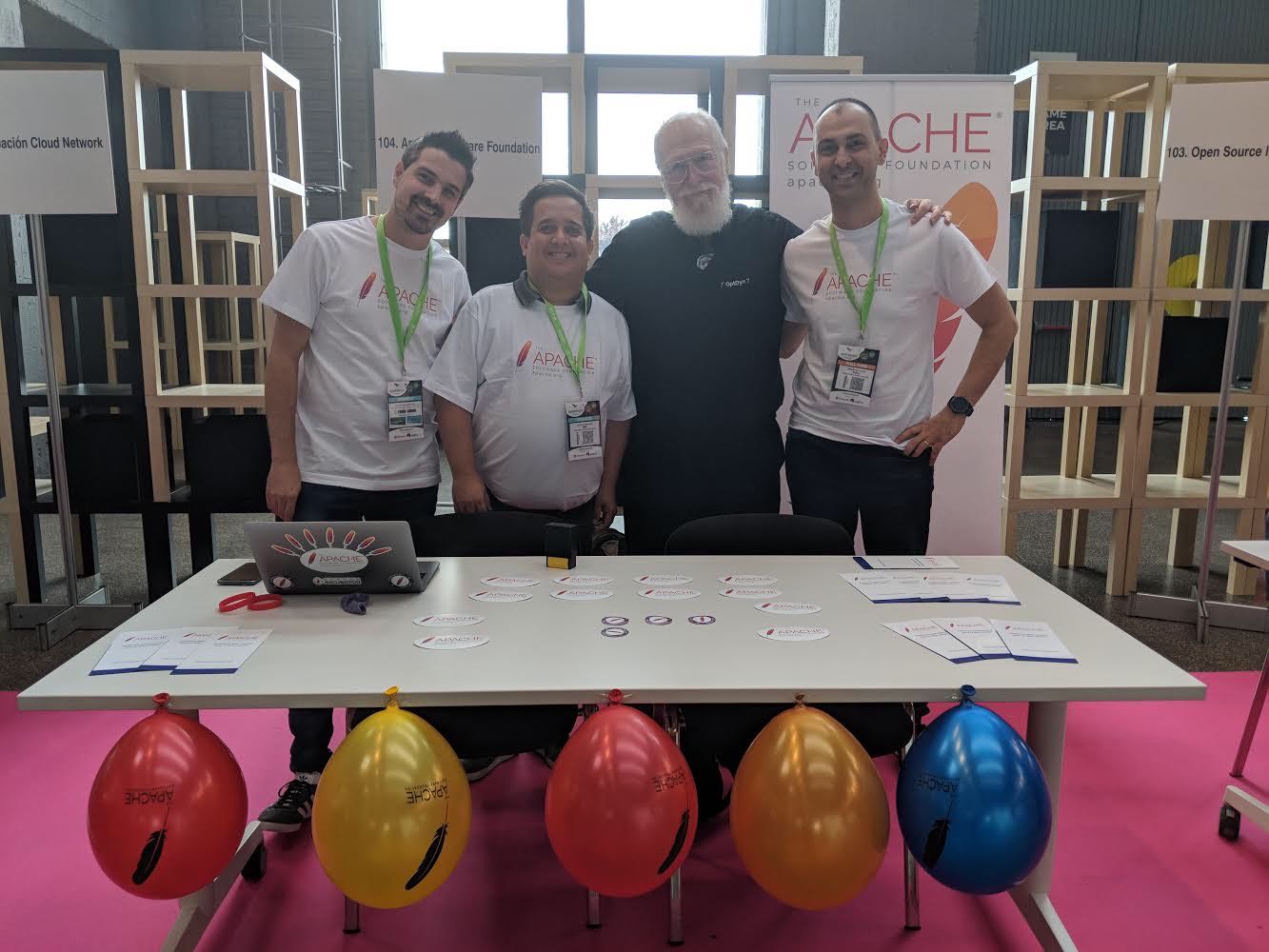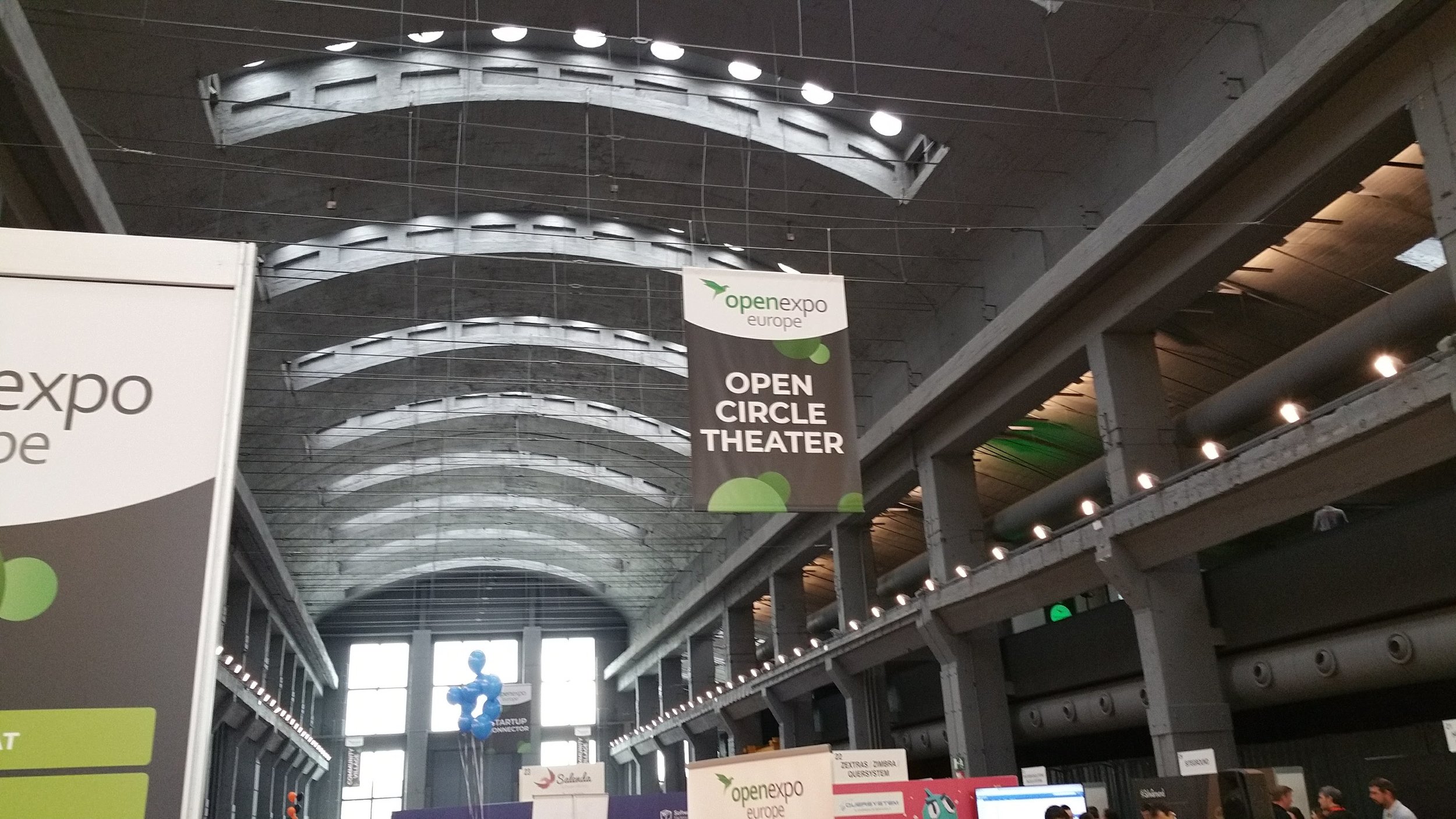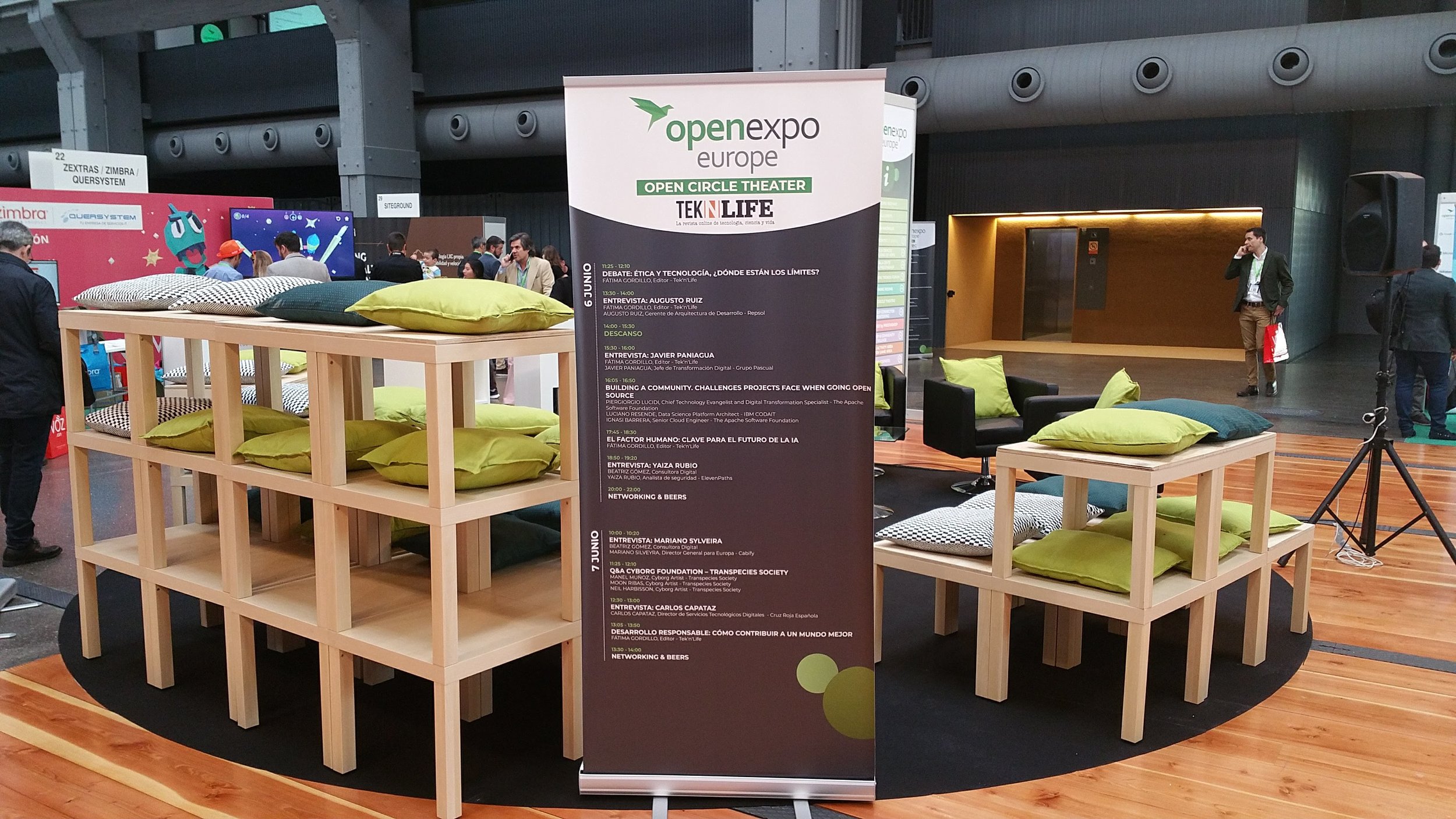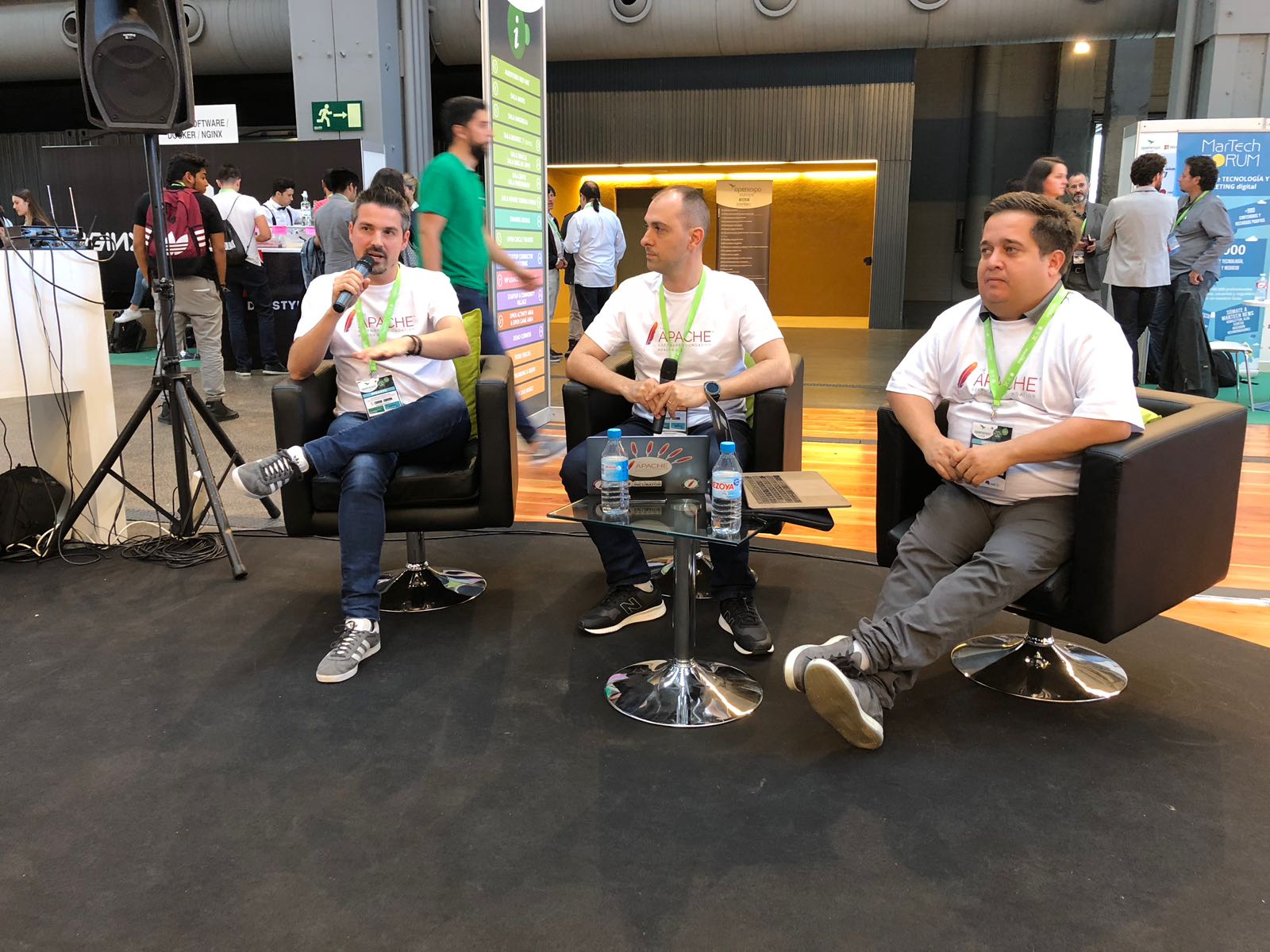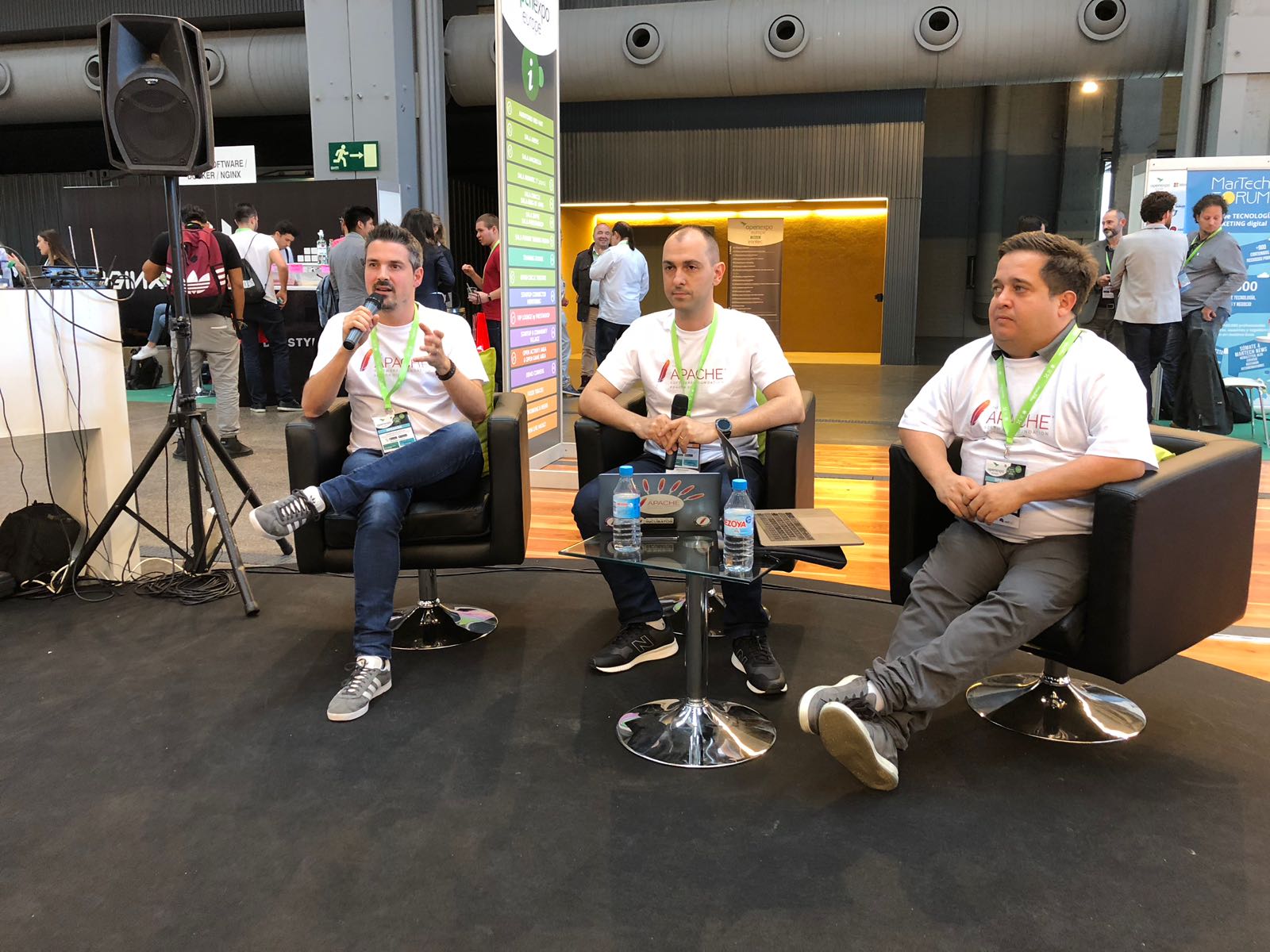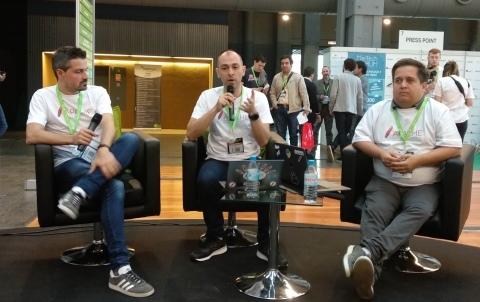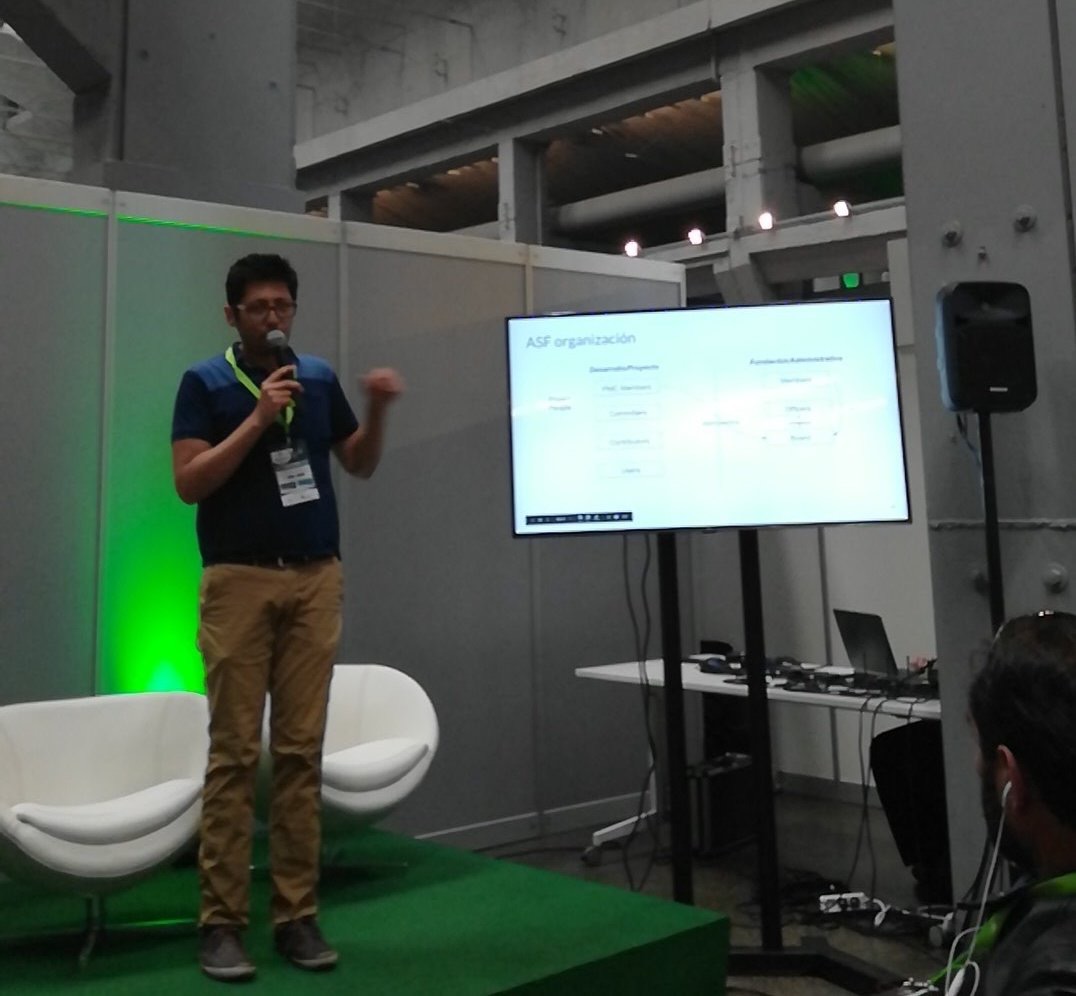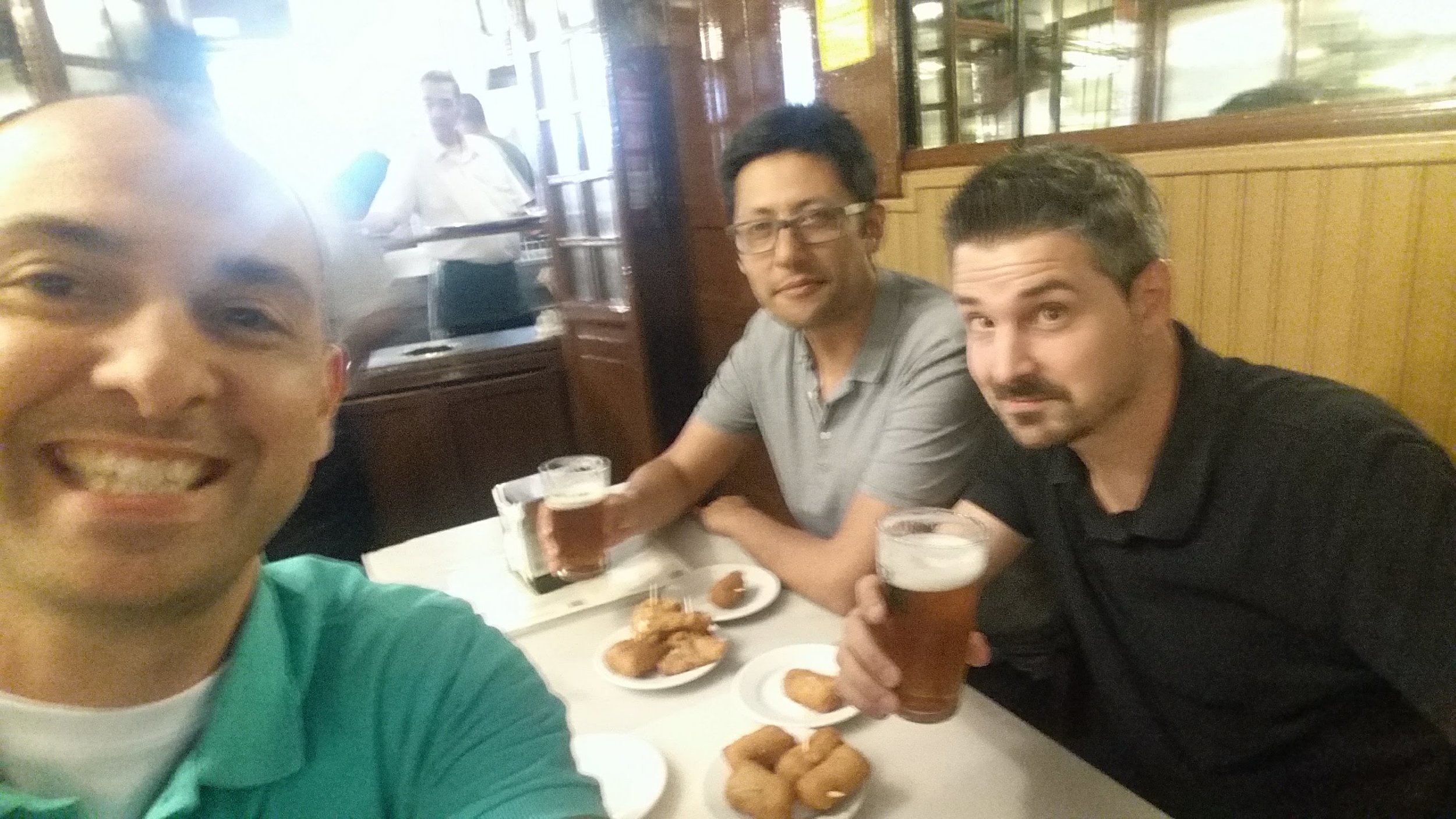As mentioned in my previous post, I joined together with other Apache guys the last OpenExpo Europe 2018 in Madrid as Community Sponsor. Yesterday was the second and last day of this conference, here some thoughts about how these two days have gone.
The location
The event was held at La Nave, a very colorful location dedicated to arrange events and activities focused on innovation. The place is divided in three naves, in the center nave there are all the sponsors booths, an open relax area and the Open Circle Theater. Inside the lateral naves there are all the congress rooms for following sessions.
When you have to grab something to eat or drink, there is a food area just outside the building and they also offer free beers \\O// (but only in specific time slots).
All the spaces are functional and appropriated for the technology context configuring different areas starting from gaming, lab, technical sessions, community and networking: simply amazing!
OpenExpo Europe 2018 - Conference Floor Plan
Apache booth
We had our own Apache booth (#104) inside the Community Village very close to the Startup Village. I appreciated the use of these empty black boxes behind the booth that we used to put our own stuff, this is a brilliant idea to avoid chaos around the booth.
From this position people coming from the entrance, before turning on the other side of the room, usually they passed by our booth and say <<Hello!>> to us... grabbing our lovely brochures, stickers, bracelets and baloons :)
Apache booth at OpenExpo Europe 2018 in Madrid
Building a Community: challenges projects face when going Open Source
During the first day we held an Open Debate to talk about challenges when you decide going Open Source. We had a little and curious group of attendees and there were some shy people around the Open Circle Theater that listened the discussion but remaining standing up.
We have covered all the planned topics during the debate starting from the challenges, trying to discover different approaches to build a community. Then we embrace the diversity topic for finishing talking about the benefits of an Open Governance.
We managed to reach the goal for summarizing the discussion with a little framework based on three different section for each topics:
- Challenges
- Action plan
- Advantages
It seems to be a very good model to engage attendees on this kind of topics, we are also wondering if we should add a Current State Status and Questions section for each topics. We worked together on these contents a little bit before the conference on the ComDev mailing list and inside our dedicated wiki page.
I think that with some improvements, we could create a real white paper or a framework useful for everyone inside a company wants to start going Open Source. It could become something similar to a toolkit to facilitate InnerSourcing adoption.
It can't solve all your problems because each project and each company has its own vision and point of view but it could become a very good starting point at least for approaching a personal way to adopt these new strategies.
Building software and communities: The Apache Way
Our Apache guy Ismaël Mejìa held a session yesterday morning at 10am. His session liked to many attendees demonstrating a pure interest in the understanding of how the Foundation works.
Ismaël Mejìa talking about ASF and The Apache Way. (Photo by Magnolia)
Feedbacks and new contributors guideline
We received a lot of great feedbacks from people at our booth as the following:
<<Thanks for your great work and for your projects! I love Apache Software Foundation!!!>>
On the other hand we also received questions such as:
<<Do you sell some products or services? Why are you here?>>
Even if a lot of people know the brand, there is a lot of work to do for spreading out The Apache Way and the culture behind projects and the Foundation itself. We are continuously trying to bring users, developers and any interested people to subscribe mailing lists, channels or to contact us directly for being guided into the right contribution path.
If people love our approach then they may try to find their own way to give back to the community. Anyway before starting to contribute in any project, they should know how the governance model actually works inside the Foundation. Another important question received was:
<<How can I help you? I don't know where to start and where my skills can be useful for you!>>
The first action that you can do is to take a look at the Newcomers page in the Apache Community Development website. In order to simplify this first step phase, we built a web application that makes easier for new contributors understand where to address their own effort. In this way you can browse all the Apache projects by one of the following properties:
- Name
- Committee
- Category (Solution area)
- Programming language
- Number of committers
One of the most useful ways to find the right project for you is going to the following page and searching by programming language:
https://projects.apache.org/projects.html?language
We typically suggest to try as a first choice any project inside the Apache Incubator because they could need more help than the other ones, you will identify them with the (incubating) suffix. When a project is in the incubator, this means that they are working on it for making the overall code, documentation, test suite and all the needed stuff compliant with any Top Level Project of ASF. You could have good chances to immediately find something to do to help the community.
Please remember that Project Management Committees don't need only developers, they are also searching for people that can support users in the mailing list, write and maintain the documentation, tutorials, blog posts and tests.
It was a huge and brilliant experience working together with all of you, starting from my colleagues in Apache to any attendees that shared with us interesting discussions. Thank you all and see you at the next Apache event :)
Ignasi Barrera, me and Luciano Resende
